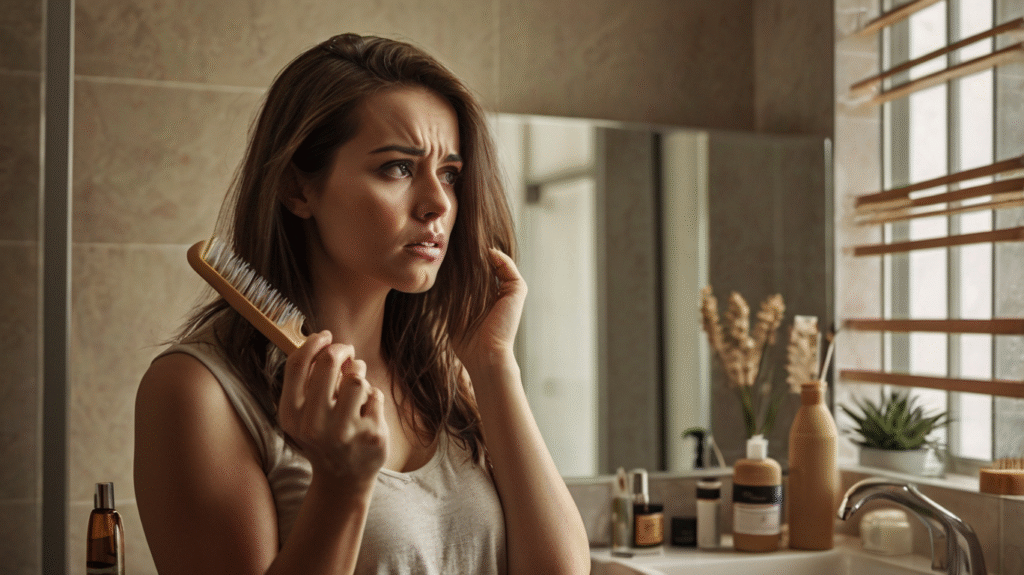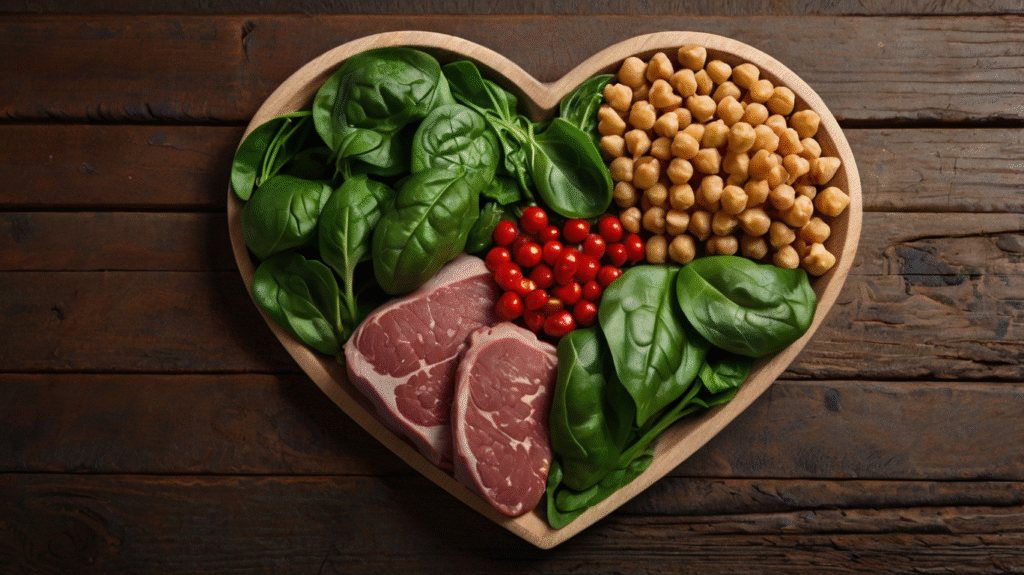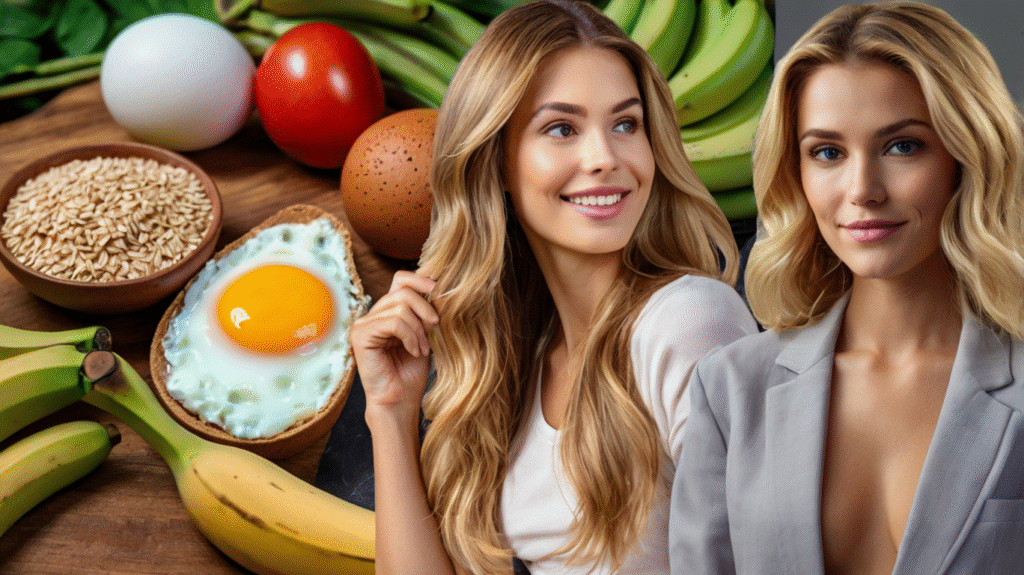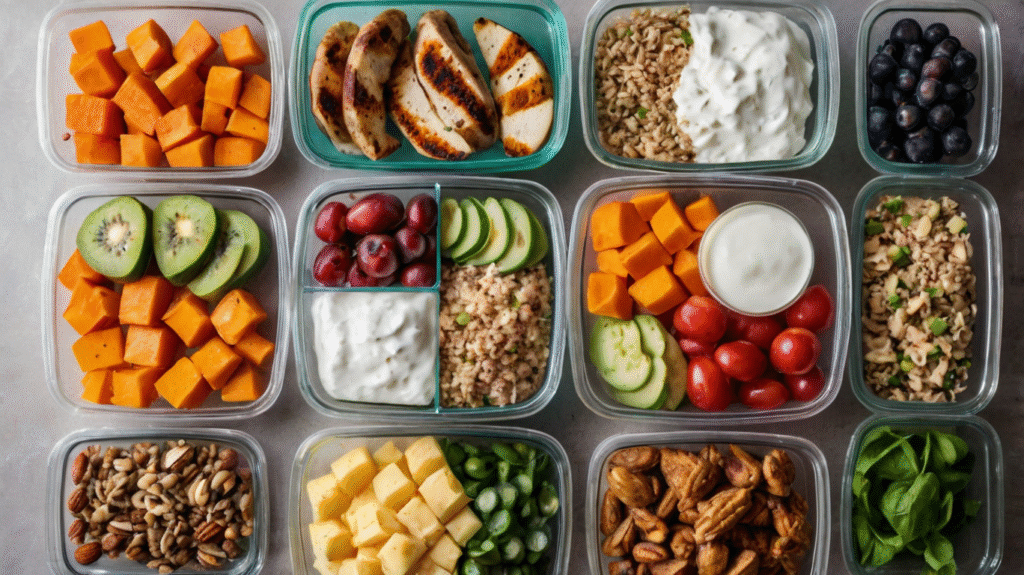The Hair Struggle Is Real: Why Diet Matters

You wash it, style it, and try countless products—but your hair still feels flat, lifeless, or even thinner by the day. Sound familiar? You’re not alone. Many people invest in expensive shampoos and treatments, often overlooking one of the most powerful tools for fuller hair: your diet.
Have you ever considered the fact that what you are putting into your mouth could be the cause of your hair problems?
A hair growth diet is not just about feeding the hair that you can see. It serves to fuel your follicles from the inside out, building the strength, shine, and thickness of your hair. In as little as 30 days, with good food choices, you can begin to notice change.
How Nutrients Affect Hair Growth
our hair is primarily made up of keratin, a protein that depends on several nutrients to thrive. Without these essentials in your body, hair growth slows, and hair strands break or become bald too quickly. It also means that a well-balanced diet for hair growth is inevitable.
Proteins, vitamins A, C, D, E, iron, omega-3 fatty acids, and zinc all play an important role in hair health. If you’re including these daily in your diet, you’re giving your hair the building blocks it needs to grow thicker and stronger.
Protein Power: The Building Blocks of Hair Strength
Iron and Zinc: Blood Flow and Follicle Support

Iron deficiency is one of the most common causes of hair loss, especially in women. Iron helps red blood cells carry oxygen to hair follicles, leading to growth and strength. Zinc, on the other hand, keeps the oil glands close to your follicles working properly.
Eat spinach, pumpkin seeds, chickpeas, red meat, and fortified cereals to add hair growth for greater iron and zinc consumption. These minerals are not only beneficial for scalp health in general so that the hair can grow thick and robust.
Vitamin C and E: Hair Protection from Damage
Hair is battered every day by sun radiation, pollution, and heat styler abuse. Enter antioxidant vitamin C and vitamin E. Vitamin C boosts collagen production, strengthening the hair shaft. Vitamin E increases blood flow to the scalp and helps with cell renewal.
Citrus fruits, almonds, sunflower seeds, and avocados must be added to your hair-growth diet. They keep your hair flexible and lustrous and protect against oxidative stress.
Omega-3 Fatty Acids: Healthy from the Inside Out
Your scalp needs to be well-hydrated to stay healthy, and omega-3 fatty acids provide the necessary hydration. These fats fight inflammation, prevent dry scalp, and cause thicker hair.
Add walnuts, chia seeds, fatty fish like salmon, and flaxseeds to your diet for hair growth. They will keep your scalp in balance and create a strong foundation for long-term volume.
Biotin and B Vitamins: The Growth Boosters

Biotin, or vitamin B7, is one of the newest nutrition trends in hair health—and rightfully so. It helps with the production of keratin and speeds up follicle growth. Other B vitamins like B6 and B12 help form red blood cells and provide nutrients to the scalp.
Make sure your diet for hair growth includes eggs, whole grains, bananas, nuts, and leafy greens. These foods are not only biotin-rich but also help reduce hair shedding and encourage stronger regrowth.
Hydration and Hair Health
While nutrients are key, water shouldn’t be ignored. Dehydration affects every cell in your body, including those responsible for growing hair. Dry, brittle strands are often a sign that you’re not drinking enough fluids.
A hair-growth diet will always include plenty of water and water-rich foods like cucumbers, melons, and oranges. Hydration will assist in getting nutrients to where they’re needed and flush out toxins, both vital for healthy hair.
Sample 30-Day Meal Plan for Hair Growth

Breakfasts:
- Greek yogurt with berries and chia seeds
- Scrambled eggs with spinach and whole grain toast
- Oatmeal with nuts and banana
Lunches:
- Quinoa salad with chickpeas, cucumbers, and olive oil
- Grilled salmon with sweet potatoes and steamed broccoli
- Lentil soup with whole-grain crackers
Dinners:
- Stir-fried tofu and mixed vegetables with brown rice
- Chicken breast with roasted Brussels sprouts and carrots
- Tuna salad with avocado and leafy greens
Snacks:
- Almonds and orange slices
- Boiled eggs
- Sunflower seeds or a smoothie with flaxseed
Do this rotation again with slight variations to keep things fresh. Consistency is the key to adhering to a solid hair growth diet.
Consistency is Key: The 30-Day Challenge
Magic isn’t going to occur overnight. With any change, persistence and patience are essential. Having a good hair growth diet for 30 days won’t only make hair thicker—it will boost your overall well-being, energy, and even the quality of your skin.
Take before-and-after pictures to keep track of your progress. After a few weeks, you should notice your hair to feel thicker, less prone to shedding, and even appear fuller.
Final Thoughts
You don’t need miracle products or radical treatments to get volume in your hair. The solution might be right in your kitchen sometimes. By committing to consuming a steady, nutrient-dense diet for hair growth, you’re investing in long-term beauty and health. Try it for 30 days. Your hair just might thank you with the fullness and luster you’ve been looking for.
FAQs:
Most people start to see the improvement in a gradual manner after 4 to 6 weeks in the form of less shedding and more gloss.
Supplements can support nutrient deficiencies but should not replace whole foods. A balanced diet is the optimal and sustainable approach.
Yes. Highly processed foods, sweet treats, and excessive alcohol can interfere with nutrient uptake and damage hair health.
Absolutely. Hair growth nutrition benefits all hair types by strengthening and making the follicles healthier.
Yes. Both men and women can benefit equally from these nutritional improvements since hair physiology is the same for both sexes.